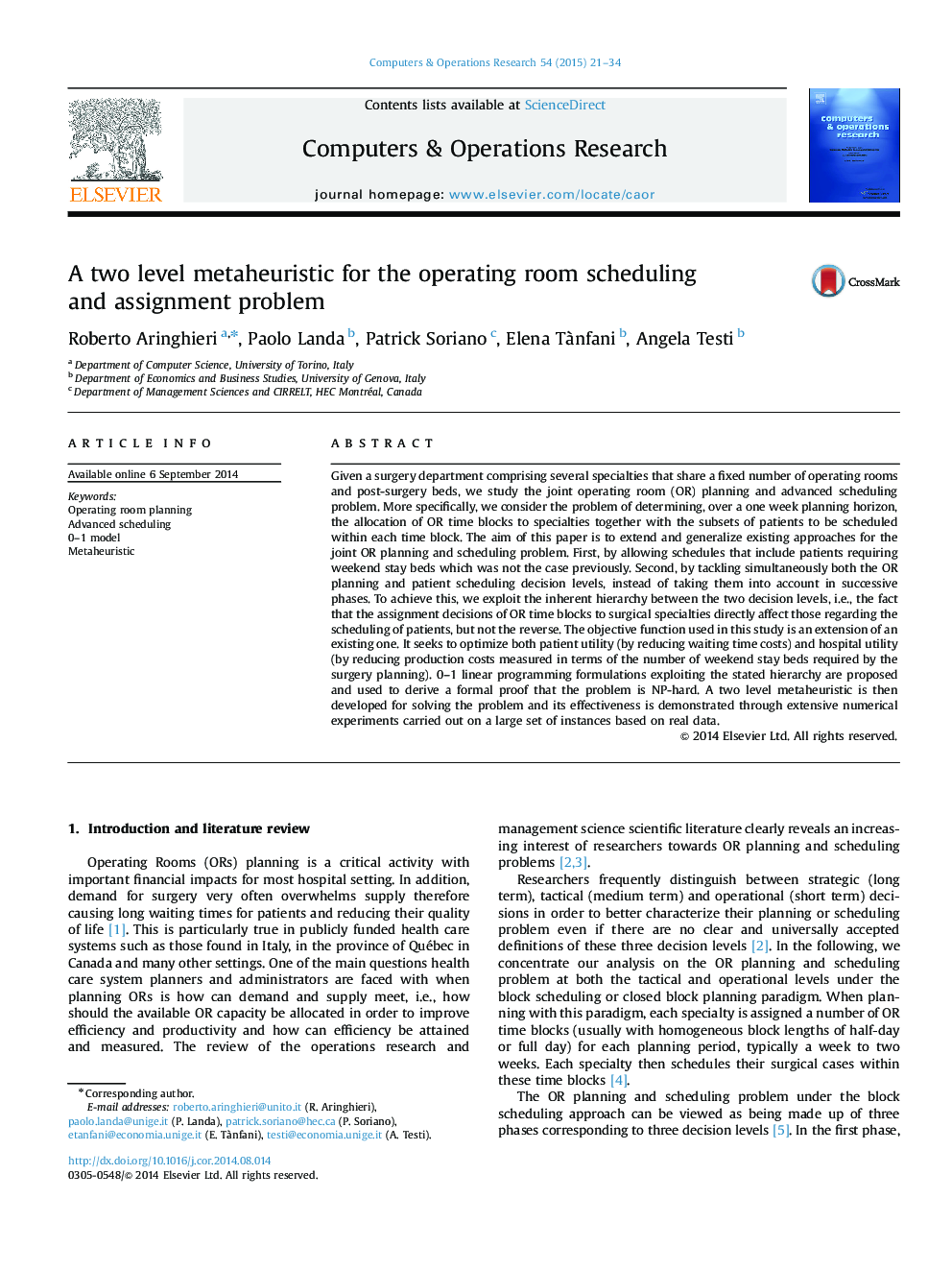| Article ID | Journal | Published Year | Pages | File Type |
|---|---|---|---|---|
| 475090 | Computers & Operations Research | 2015 | 14 Pages |
Given a surgery department comprising several specialties that share a fixed number of operating rooms and post-surgery beds, we study the joint operating room (OR) planning and advanced scheduling problem. More specifically, we consider the problem of determining, over a one week planning horizon, the allocation of OR time blocks to specialties together with the subsets of patients to be scheduled within each time block. The aim of this paper is to extend and generalize existing approaches for the joint OR planning and scheduling problem. First, by allowing schedules that include patients requiring weekend stay beds which was not the case previously. Second, by tackling simultaneously both the OR planning and patient scheduling decision levels, instead of taking them into account in successive phases. To achieve this, we exploit the inherent hierarchy between the two decision levels, i.e., the fact that the assignment decisions of OR time blocks to surgical specialties directly affect those regarding the scheduling of patients, but not the reverse. The objective function used in this study is an extension of an existing one. It seeks to optimize both patient utility (by reducing waiting time costs) and hospital utility (by reducing production costs measured in terms of the number of weekend stay beds required by the surgery planning). 0–1 linear programming formulations exploiting the stated hierarchy are proposed and used to derive a formal proof that the problem is NP-hard. A two level metaheuristic is then developed for solving the problem and its effectiveness is demonstrated through extensive numerical experiments carried out on a large set of instances based on real data.
